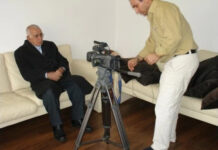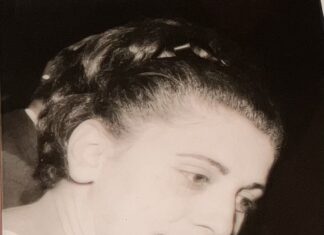JERUSALEM — Clouds scud across the Jerusalem sky, carrying aloft with them the hopes and aspirations of the city’s tiny community of poets, artisans and dreamers, the Armenians.
As they pause in their daily labor to mourn the passing of their spiritual leader, Archbishop Torkom Manoogian, Armenian Patriarch of Jerusalem, on October 12, many wonder what the future holds for them and for their church.
The death of the 93-year-old patriarch who called himself, poetically, TAM or Shen-Mah, is bound to have a profound impact not only on the life and times of the Armenians of Jerusalem, but on the Armenian diaspora as well.
Armenians all over the world regard Jerusalem, the city of Christ, as their second holiest sanctuary after Echmiadzin, although it wasn’t the quest for religious rejuvenation that first brought ancestors people to Jerusalem: they had arrived with the
conquering armies of Tigranes II, a full century before the birth of Jesus.










